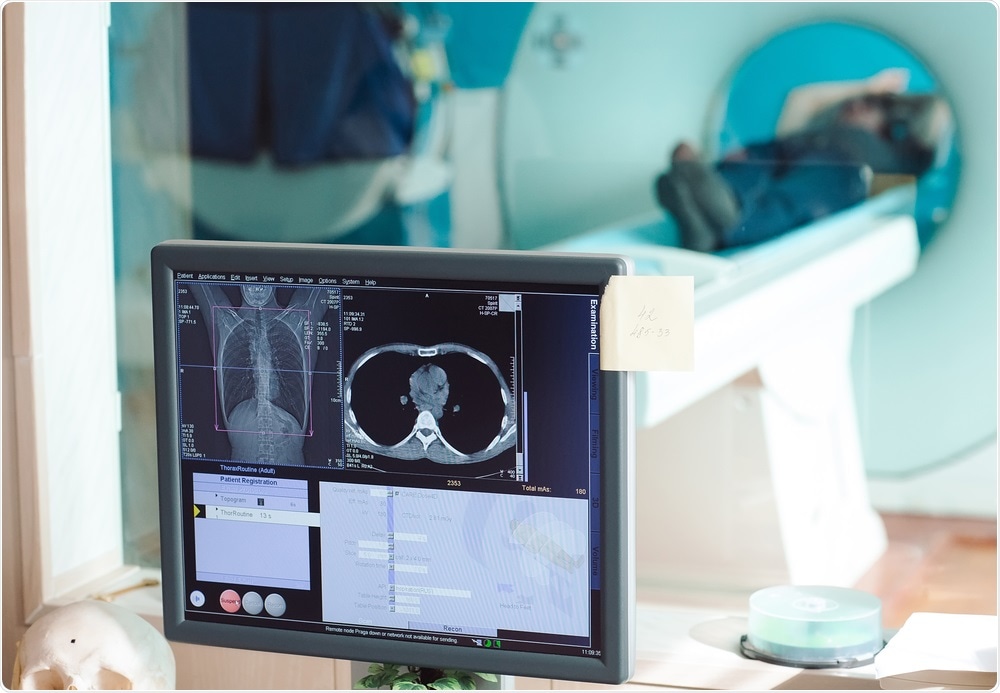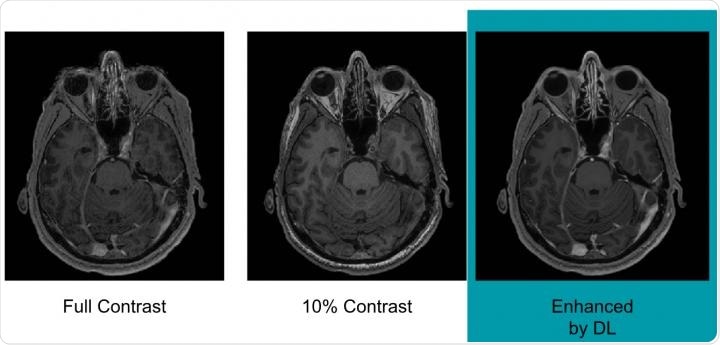A new study has shown that artificial intelligence could be used to dramatically reduce the amount of gadolinium used in MRI scans.

David Tadevosian | Shutterstock
The findings, which are being presented today at the annual meeting of the Radiological Society of North America, point towards the possibility of performing MRI scans without trace amounts of the contrast agent being left behind in the body.
There is concrete evidence that gadolinium deposits in the brain and body. While the implications of this are unclear, mitigating potential patient risks while maximizing the clinical value of the MRI exams is imperative.”
Enhao Gong, Lead Author
Gong and colleagues have been using a deep learning algorithm as a way to achieve this.
Using models called convolutional neural networks, the researchers trained the algorithm to recognize and finely distinguish between imaging data in a way that a human may not be able to.
The team collected three sets of MRI images for each of 200 patients who had undergone contrast-enhanced scans.
Pre-contrast scans carried out before any contrast had been administered were referred to as zero-dose scans; those that used 10% of the standard gadolinium dose were referred to as low-dose scans and those that used 100% of the standard dose were referred to as full-dose scans.
Gong and colleagues report that the algorithm was able to discern between all three sets of scans.
Neuroradiologists then compared contrast enhancement and image quality between the different types of scans.
The results showed that the image quality did not differ significantly between the three scan sets and also indicated that the equivalent of full-dose scans could be generated without using any gadolinium at all.
 Example of full-dose, 10 percent low-dose and algorithm-enhanced low-dose. Credit: Radiological Society of North America.
Example of full-dose, 10 percent low-dose and algorithm-enhanced low-dose. Credit: Radiological Society of North America.
Gong says the results indicate the method’s potential for significantly reducing the gadolinium dose, without compromising diagnostic quality:
Low-dose gadolinium images yield significant untapped clinically useful information that is accessible now by using deep learning and AI.”
Enhao Gong, Lead Author
Next, the researchers want to study the technique further in the clinical setting and assess its use across a wider range of scanners and across other types of contrast agents.
"We're not trying to replace existing imaging technology. We're trying to improve it and generate more value from the existing information while looking out for the safety of our patients,” concludes Gong.